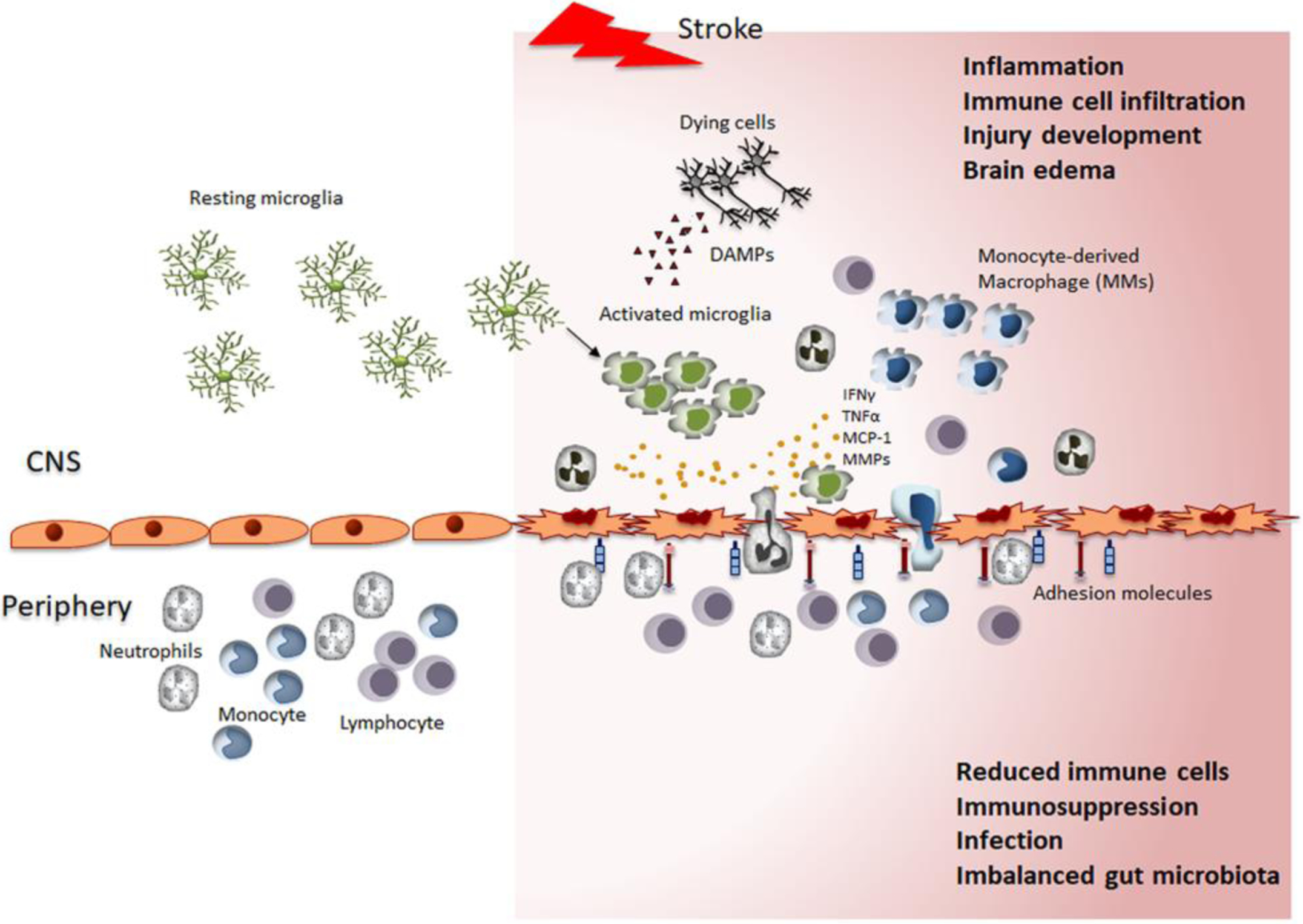Figure 1.

Interactions between the CNS and peripheral immune systems in response to stroke. Partitioned prior to stroke, the immune system of the CNS and periphery are connected through the disrupted BBB following stroke. Surveilling microglia encountering danger signals (e.g., DAMPs) in the affected area are activated and produce inflammatory mediators. Increased expression of adhesion molecules in vessels allows trans-endothelial migration of circulating immune cells. Infiltrated neutrophils, monocytes, and lymphocytes elicit neural inflammation. The deployment of peripheral immune cells to the injured brain and excessive neuroimmune reactions in the CNS profoundly disturb peripheral immunity and lead to immune depression, infection, and imbalanced gut microbiota. The stroke-induced alteration of immunity and the inflammatory response in CNS and periphery influence injury development and repair/remodeling processes.
